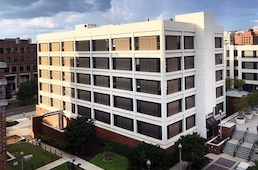
UAB Diabetes Research Center
616 Webb Nutrition Sciences Building
1675 University Blvd
Birmingham, AL 35294-3360
United States

UAB Diabetes Research Center
616 Webb Nutrition Sciences Building
1675 University Blvd
Birmingham, AL 35294-3360
United States
The Diabetes Research and Training Center (DRC) focuses on developing new methods to treat, prevent, and ultimately cure diabetes and its complications. The DRC is a multi-disciplinary operation with faculty researchers from UAB's Schools of Health Professions, Medicine, and Public Health, among other units. It operates in collaboration with the UAB Comprehensive Diabetes Center to promote excellence in diabetes research and patient care. The DRC supports research in the areas of pathology, animal physiology, human biology, metrics and health services research, and community research. It is one of sixteen NIDDK-sponsored diabetes research and training centers in the U.S.
The primary mission of the center is to promote excellence in diabetes research. The UAB DRC offers extensive laboratory, personnel, and programmatic resources in support of diabetes related research. The DRC encompasses five research core facilities: REDOX Biology, Animal Physiology, Human Physiology, and Interventions & Translation Research. The resources and facilities attendant to each core are described in detail in the individual core descriptions. There are many university-wide resources available to researchers and trainees of the DRC. Our center is part of this rich environment and is key to our success and productivity. Over the past 6 years, the DRC has galvanized the UAB research community around the study of diabetes resulting in an increase in membership from 115 to 179, and a 32.5% increase in extramural research funding. Through these efforts, the center ultimately endeavors to decrease diabetes morbidity/mortality, and to provide an outstanding environment for training and career development in diabetes research.
Our specific aims are to: